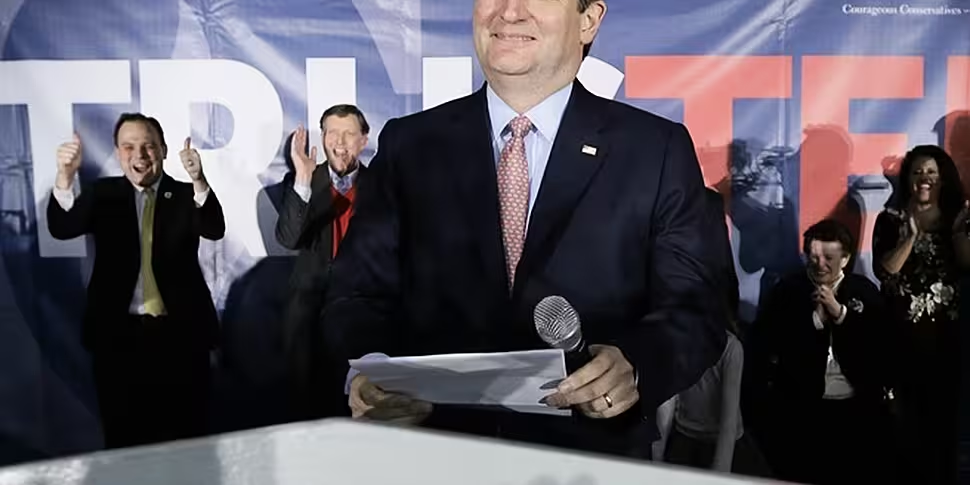After weeks of buildup and countless polls, the results of Iowa are finally in, and once again there have been a few surprises.
The Republican race was won by Ted Cruz with 28% of the vote, Donald Trump followed in second with 24%, while Marco Rubio was close behind them both with 23%.
For the Democrats, things were considerably closer, and a number of precincts were apparently decided by the flip of a coin between Hillary Clinton and Bernie Sanders.
This is how the #IowaCaucus works. A tie is solved tossing a coin @HillaryClinton wins pic.twitter.com/yZDTUKFJXQ
— Fernando Peinado (@FernandoPeinado) February 2, 2016
Iowa provides the first meaningful results of a long campaign, so what can we take from Monday night's cacuses?
Republicans
Ted Cruz was always expected to challenge Trump closely in Iowa - he appeals to the evangelical vote there and Trump has had his problems in striking a chord with religious voters. While the loss in Iowa is a slighty bloody nose, so to speak for Trump, he has been concentrating on New Hampshire and South Carolina, where there are more delegates up for grabs.
As primaries, there's more information to be gleaned there about a candidate's likely performance in a general election, but Iowa has shown some interesting trends emerging in this race.
Trump wasn't the only one left with a bloody nose on Monday night, as the "establishment" of the Republican Party (or Grand Old Party/GOP) saw two candidates who are anti-party politics break out into the lead.
In Cruz's victory speech, he stated "Iowa has sent notice that the Republican nominee and the next President of the United States will not be chosen by the media, will not be chosen by the Washington establishment".
Deliberately calling out the "establishment" is unlikely to win him any more fans, but as it is he doens't have many (or any) in the GOP anyway, with Bob Dole stating recently that "nobody likes him" and if he were to win the nomination, he would have serious difficulty in working with Congress.

Image: Charlie Riedel / AP/Press Association Images
The promise of both Cruz and Trump was that they would animate voters to turnout in the same way that Obama did in 2008, and that has worked, to a point. Republicans topped their 2012 turnout record by some 60,000, with indications that the numbers who turned out to vote could top 180,000 in Iowa.
Trump's issue is that he may have animated those who are also fiercely against him and want to see someone else get the nomination. In the run up to the caucus, a Quinnipiac University poll found that 26% of Iowa Republicans said they "would definitely not support" him, while just 7% said that about Cruz.
With those numbers in mind, it may well be Marco Rubio who is one of the big winners on the night. If Trump did play a role in his own downfall, and Cruz has has consistently fought the party leaders on a number of issues, he is the candidate that the "establishment" may well choose if he can keep performing to the same high level that he did in Iowa.
Being within a few percent of the leader and finishing so close to Trump is possibly better than he could have hoped for, so it was no surprise to see him smiling after the results were read out, despite his loss.

Image: Paul Sancya / AP/Press Association Images
Democrats
Although Hillary Clinton was declared the winner, up until a few months ago, she was the lone ranger in a one horse race for the nomination. Bernie Sanders' performance proves that, possibly for both parties, there may be a different voter out there that they will need to appeal to.
As far right as Trump and Cruz seem, Sanders somewhat represents the mirror image of that on the left: he has promoted universal healthcare, despite the division created by 'Obamacare', and is calling for tax hikes for the wealthy.
There is possibly a degree of race envy going on with the Democrats this time, but Sanders has now gotten his issues on the table, as Clinton will have to engage in a debate about them and defend herself against allegations that she is too closely tied to Wall Street. She did herself no favours by leaving the state to go to a campaign fundraiser run by a Philadelphia investment firm as she tried to win the caucus.

Image: J. David Ake / AP/Press Association Images
Iowa party chairman Andy McGuire said that "the results tonight are the closest in Iowa Democratic caucus history", and part of that was down to the fact that Sanders did well not only among liberal college towns, but also in Des Moines and Cedar Rapids, the two largest industrial and urban areas in the state.
It's worth remembering just how much is on the line in Iowa though, and the answer is, well...not all that much. Although Cruz has won, he gets just eight delegates and needs to secure another 1,229 to actually get the nomination in July.
New Hampshire's primary takes place next week and South Carolina follows shortly afterwards on February 20th, and the latter is a winner takes all contest. That's a more meaningful step along the road, while Super Tuesday will fill in even more blanks about who the real nominee is, but if Iowa taught us anything, it's that it's time to genuinely consider Bernie Sanders and Marco Rubio.









